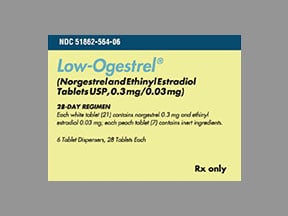Low-ogestrel is a limited distribution medication.

Low-ogestrel Coupons & Savings Card – Discount Prices from $12.27
My prescription
Edit
0.3-30MG-MCG, Low-ogestrel (28 Tablets)
Select pharmacy

CVS
$22.20
COUPON PRICE
Walgreens
$12.27
COUPON PRICE
Walmart
$13.20
COUPON PRICE
Albertsons
$18.96
COUPON PRICELow-ogestrel savings card
Show this card to your pharmacist
Walgreens
$12.27
BIN
ID
PCN
GRP
015995
LHKPV528041
GDC
DR33
Powered by
Price history for Low-ogestrel
28 Tablets, 0.3-30MG-MCG
Average retail price for Low-ogestrel
Average SaveHealth price for Low-ogestrel
Our price history data is based on aggregated prescription data collected from participating pharmacies in America. Our prescription data updates daily to reflect the latest price changes. If you notice a missing data point, it means there wasn't sufficient data available to generate a monetary value for that date.
*Retail prices are based on pharmacy claims data, and may not be accurate when we don't have enough claims.
Low-ogestrel dosage forms
Dosage Quantity Price from Per unit 0.3-30MG-MCG 28 Tablets $13.20 $0.47 0.3-30MG-MCG 168 Tablets $49.72 $0.30
| Dosage | Quantity | Price from | Per unit |
|---|---|---|---|
| 0.3-30MG-MCG | 28 Tablets | $13.20 | $0.47 |
| 0.3-30MG-MCG | 168 Tablets | $49.72 | $0.30 |
What kind of birth control is Low-Ogestrel?
Low-Ogestrel is a combination oral contraceptive pill. It contains two hormones, ethinyl estradiol and norgestrel, which work together to prevent ovulation, thicken cervical mucus, and alter the uterine lining to prevent pregnancy.
What does Low-Ogestrel do to a woman's body?
Low-Ogestrel is a combination oral contraceptive pill that contains both estrogen and progestin. It primarily works by preventing ovulation, which means it stops the ovaries from releasing an egg. Additionally, it thickens the cervical mucus, making it more difficult for sperm to enter the uterus, and alters the uterine lining, reducing the likelihood of implantation. These actions together help prevent pregnancy.
Does Low-Ogestrel stop periods?
Low-Ogestrel, a combination oral contraceptive, may lead to lighter periods or, in some cases, cause periods to stop altogether. This effect can vary from person to person. If there are concerns about changes in menstrual cycles while taking Low-Ogestrel, it is advisable to consult with a healthcare provider.
Is Low-Ogestrel the same as Cryselle?
Yes, Low-Ogestrel and Cryselle are essentially the same medication. They both contain the same active ingredients, ethinyl estradiol and norgestrel, and are used as oral contraceptives. The difference lies in the brand names and possibly the inactive ingredients or the manufacturer.
Is Cryselle a strong birth control?
Cryselle is considered an effective form of birth control when taken as directed. It is a combination oral contraceptive pill containing both estrogen and progestin, which work together to prevent ovulation, thicken cervical mucus, and alter the uterine lining to prevent pregnancy. Like all birth control pills, its effectiveness can be reduced if not taken consistently at the same time every day.
